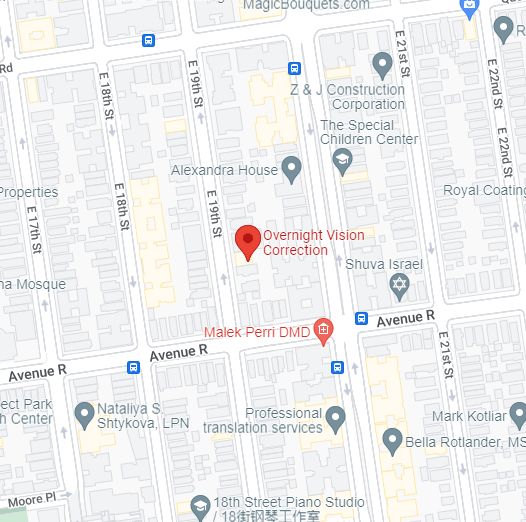Debunking The Myth
There’s a persistent myth that wearing glasses can weaken your eyes over time. This belief has been around for a long time, mostly because people think their vision gets worse after they start wearing glasses. But here’s the truth: this decline in vision is due to the natural progression of eye conditions, such as myopia (nearsightedness), and not because of the glasses themselves.
How Glasses Work
Glasses work by correcting the focus of light onto the retina—the light-sensitive layer at the back of your eye—allowing you to see clearly. They do this without changing the physical structure of your eyes. When you wear glasses, you’re simply giving your eyes the help they need to focus properly, without causing any harm to their natural ability.
Why the Myth Persists
It’s easy to see how this myth gained traction:
- Why Vision May Feel Worse After Getting Glasses: When people first start wearing glasses, they may feel like their vision is getting worse. But this is just the natural progression of their existing eye condition.
- Heightened Contrast: When you get used to seeing clearly with glasses, taking them off makes everything look even blurrier than before. This contrast can make it seem like your vision has gotten worse because of the glasses when in fact it hasn’t.
How Glasses Protect Your Vision
Focus Correction
Glasses correct the way light enters your eyes, making sure it focuses directly on the retina—the part of your eye that sends visual information to your brain. For conditions like myopia (nearsightedness) or hyperopia (farsightedness), the natural shape of the eye causes light to focus incorrectly, leading to blurry vision. Glasses adjust this focal point so you can see clearly at different distances, without straining your eyes or making your vision worse.
Reduction of Eye Strain
Without your glasses, your eyes have to work extra hard to focus, which can lead to strain. This constant effort, called accommodative stress, can cause headaches, eye fatigue, and even speed up the worsening of vision problems like myopia. Wearing your glasses as prescribed helps your eyes relax and prevents this strain, keeping your vision more stable.
Consistent Use Benefits
Wearing your glasses regularly helps keep your vision clear and your eyes healthy. It also helps prevent your vision from getting worse by keeping your eyes focused correctly. Consistent use reduces eye strain, allowing you to do daily activities comfortably. Follow your optometrist’s advice on when and how often to wear your glasses to make the most of these benefits and protect your vision.
The Psychological Benefits of Clear Vision
Clear vision isn’t just about physical eye health; it has significant psychological benefits as well. Being able to see clearly enhances your confidence, reduces anxiety in unfamiliar environments, and improves your overall quality of life. Whether it’s reading, driving, or simply recognizing faces, clear vision allows you to engage more fully with the world around you, reducing stress and increasing your sense of well-being.
Practical Tips for Wearing Glasses
Ensuring Proper Fit and Comfort
A good fit is key to comfortable and effective use of glasses. Poorly fitting glasses can slip down your nose, pinch your temples, or press behind your ears, causing discomfort and even headaches. To get the best fit:
- Adjust the nose pads so they rest comfortably on your nose, keeping your glasses in place.
- Ensure the frames sit level and aren’t tilted, as this can impact your vision.
- The arms of your glasses should wrap gently around your ears without being too tight or loose.
If you experience any discomfort, visit your optometrist or eyewear specialist for adjustments.
Maintaining Clean and Clear Lenses
Clean lenses are essential for good vision and keeping your glasses in top shape. Smudges and dust can strain your eyes. To keep your lenses clean:
- Use a microfiber cloth specifically designed for glasses.
- Avoid using rough fabrics or paper towels, as they can scratch the lenses.
- Use lens cleaner or mild soap and water to remove oil and smudges, and dry with a soft cloth.
- Check your lenses throughout the day to ensure they are clean, especially before tasks like driving.
Guidelines on When to Wear Your Glasses
Knowing when to wear your glasses helps you get the most out of them. Follow your optometrist’s recommendations based on your needs:
- If you have myopia or hyperopia, you might need to wear glasses all the time to see clearly at all distances.
- Others might only need glasses for specific activities like reading, using a computer, or driving.
- Carry your glasses with you, even if you don’t need them all the time, to avoid eye strain when needed.
Transitioning for First-Time Wearers
Wearing glasses for the first time can take some getting used to. You might feel slight dizziness, headaches, or altered depth perception at first, but this usually passes in a few days to weeks. To make the transition easier:
- Start by wearing your glasses for a few hours each day and gradually increase the time.
- If discomfort persists, consult your optometrist to check the prescription and fit.
Adapting to a New Prescription
Even experienced glasses wearers need time to adjust to new prescriptions. Changes in lens strength can make things appear different, and you might feel disoriented. To adapt quickly:
- Wear your new glasses consistently to help your eyes adjust.
- If discomfort doesn’t go away, check with your optometrist to ensure everything is correct.
Caring for Your Glasses
Proper care keeps your glasses effective and comfortable. Here are some tips:
- Store them in a protective case when not in use.
- Avoid placing your glasses face-down on surfaces to prevent scratches.
- Don’t use hot water or household cleaners on your lenses; these can damage the coatings.
- Regularly check for loose screws or adjustments that need tightening.
- If they become bent or damaged, have them professionally repaired rather than attempting to fix them yourself.
Ensuring Your Vision’s Best Future
Wearing glasses is more than just a way to see clearly—it’s a crucial part of maintaining your overall eye health and comfort. From ensuring a proper fit to keeping your lenses clean, each step in caring for your glasses plays a vital role in protecting your vision and preventing long-term damage. Your glasses are custom-made to suit your unique vision needs, unlike over-the-counter options that can’t provide the same level of correction and comfort.
To ensure your glasses continue to provide optimal vision correction, it’s essential to schedule regular eye exams with your optometrist. Vision changes over time, and what worked a year ago might not be the best fit today. During these exams, your optometrist can adjust your prescription as needed and ensure that your glasses are still the right fit. This personalized approach is what makes prescription glasses truly custom, giving you the best possible vision every day.
By taking these practical steps and keeping up with regular check-ups, you’re investing in a lifetime of clear vision and comfort. Wear your glasses with confidence, knowing you’re doing the best for your eyes and your overall well-being.
HELP SPREAD THE WORD





